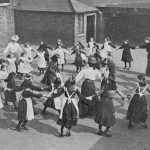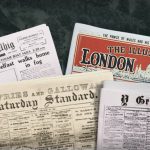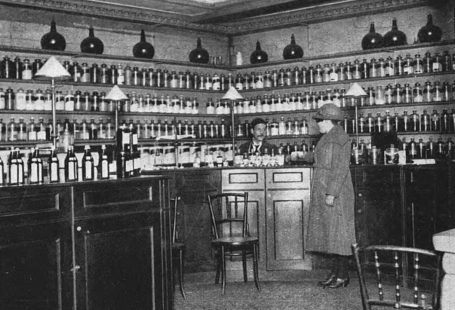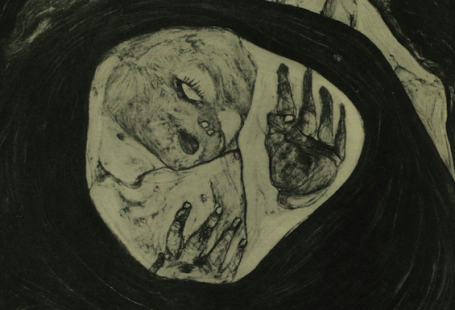The British Newspaper Archive, in partnership with the British Library, has been bringing history to life for over a decade through the pages of its extensive collection. We are now delighted to announce that the British Library will be extending this long-term partnership, and together we will continue to digitise more and more historic newspaper titles from across the United Kingdom and beyond.
First launched in 2011, the British Newspaper Archive, working with the British Library, has so far digitised over 42 million pages of regional, national and specialist newspapers. Over the next three years, the partnership will digitise another 14 million pages.
Particular highlights of this continuing digitisation project, which represents the largest online collection of British and Irish newspapers in the world, include:
- The digitisation of women’s suffrage newspapers including The Vote and The Suffragette
- Our collection of specialist sporting titles including The Sporting Times and the Athletic News
- The addition of international titles from India, China, Jamaica, Canada and elsewhere
- The publication of the Brontë family’s preferred newspaper the Halifax Guardian
- Our addition of early illustrated titles like the Pictorial Times and the Penny Illustrated Paper
- Our collection of political and trade unionist titles like the Labour Leader and the Bee-Hive
And to celebrate the continuation of this partnership with the British Library, we are showcasing the experiences of our community. These testimonials demonstrate what this continuing partnership has brought to our members and how the newspapers of the British Newspaper Archive can be used for a wide variety of research interests.
1. Adding Colour to History
I have added colour to the history by finding stories about the pubs and landlords in the British Newspaper Archive. This gives a good flavour of how the pubs were used, the characters of the clients and landlords and gives readers a good idea of what it was like in these towns and pubs in times gone by.
‘Exciting Scene in a Public House’ | Illustrated Police News | 19 September 1912
Stories like how the landlord of The Man of Ross got in a fight in the street outside his pub, how the Crown and Sceptre was described in the late 1800s with blood running down the street from the butchers next door, and how there was only a thin divide between the Kings Arms and the house next door but they were never disturbed!
– James Thornley, Creator of the Ross Pub History Ale Trail
2. Discovering Local Characters
Articles in local newspapers have revealed details that would be unlikely to be been found elsewhere, such as personal attributes revealed through interviews with local ‘characters;’ business connections of small traders or craftsmen; and conflicts between neighbours.
– Anonymous
3. An Important Perspective
The Cornhill Quarter History Project has worked alongside the development [of the Cornhill Quarter in Lincoln], researching the history of each property and producing two books about the area for the wider public. The British Newspaper Archive has played a vital role in this. Property sales and auction notices have given details not provided by the land deeds or directories; news stories have added to the colourful history of the area, especially regarding crime, living conditions and accidents.
Lincolnshire Echo | 19 May 1932
The best nuggets, however, have probably come from the advertisements, including one in 1904 for a husband! In contemporary newspapers you are able to view an area as it was seen at the time, adding an important perspective which is not usually available. Quite simply, without the British Newspaper Archive, the history of the Cornhill Quarter area would have been poorer and much less colourful.
– Lincolnshire Co-Op
4. Results Within Seconds
I use The Archive to research the story of my ancestors’ journey from Scotland to Australia during a period known as the Highland Clearances. Without The Archive I would probably have to travel to London and spend days/weeks/months/years even going through catalogues and microfilm to find relevant information! However, with The Archive I can put key words in a search box and have a result within seconds.
– Chris Stuart, Friends of the White Hut Gaelic Cemetery
5. Exciting and Vivid Lives
The newspapers on The Archive provide rich information about the lives of criminals and their crimes, which perfectly compliments the prison records of the time.
Prisoners Exercise in the Yard at Wormwood Scrubs | The Sphere | 20 April 1907
As a result, we are able to research inmates and patients, whose lives were as exciting and vivid as any baron or poet; exploring their loves, their losses, what they endured, but most of all proof that they existed.
– Daniel Shepherd, Director of the Institutional History Society
6. Voices of the Marginalised
For my research, it provides a rare window on histories of Victorian and Edwardian women, working class people, and people of colour in particular. Voices which have often been marginalised are evident in the classified advertisements, court reportings, cartoons and marketing material scattered throughout the periodical press.
– Anonymous
7. Collating History
1st Fressingfield of Southern Norfolk has been looking to collate all of our history, ultimately seeking to find the date we were formed. With thanks to the British Newspaper Archive, we have been able to find our first Scoutmaster, which has enabled us to find the date on which he obtained a warrant to start the ‘Fressingfield Boy Scouts.’
An early Boy Scout patrol in Derby | The Sphere | 17 October 1908
We have also been able to build up a large profile of early events and camps we participated in, showing that our small village in the heart of Suffolk was one of the earlier formed scout groups in 1908.
– 1st Fressingfield Scout Group, Southern Norfolk
8. House History
I decided to fulfil a long-held ambition to find out about the history of our home – knowing that it had been built in the 1870s as a miner’s cottage I was keen to learn more of its former occupants…I turned to the British Newspaper Archive to see whether mention was made of any of them…and what a treasure trove that turned out to be!
A family outside a Northumberland miner’s cottage | The Graphic | 8 February 1829
Since copies of the West Cumberland Times and Maryport Advertiser for the early years of occupation have been committed to The Archive, I was able to track down some fascinating stories. These are stories which helped me to gain a better understanding of those who toiled in the mines here, long ago, and returned home to our little abode. They are also stories which so fascinated me, that I wanted to share them with others – all possible because of the British Newspaper Archive. Without The Archive material available, there wouldn’t have been an easy route to uncover any narrative at all.
– Dr James Bettley, Architectural Historian
9. Fleshing Out the Bare Bones
I’ve been researching my own family history for about 15 years…but initially assumed that because my ancestors were neither rich nor famous, it wouldn’t be worth searching for them in the British Newspaper Archive. Then about five years ago, almost by accident, I found a news item about my grandfather that turned into a paper trail that enabled me to trace the many bigamous marriages which resulted in him serving a prison term with hard labour.
An example of a charge of bigamy from the Illustrated Police News | 28 February 1935
Now I always search for people that I am researching in the British Newspaper Archive. Many do not appear but surprisingly often they do and the results have really helped me to flesh out the bare bones of dates and places relating to people in my family tree.
– Patricia, BNA User and Family Historian
10. Painting a Picture
I think that people in general would be surprised about how often their ancestors appeared in the newspapers. I have found Births, Marriages and Deaths columns particularly useful in local papers where my ancestors lived. Obituaries often provide insights into the characters of long dead relatives, thus bringing them to life once more. For example, little details sometimes emerge, such as finding out that my great-uncle, killed in the Second World War, was known as ‘Bob’ by his police colleagues in Barrow-in-Furness. They all paint a picture.
– Anonymous
Thank you to our community to providing this feedback. At The Archive we love to hear about the discoveries our members have made using our newspapers, the research they have been undertaking, and the unexpected gems that they have stumbled across!
And you may too be inspired to delve into the thrilling pages of our Archive – whether you’re researching your family history, or the history of your house, your local sports team, street, or hobby, The Archive is a treasure trove full of stories waiting to be discovered. Watch our get started video here, or start searching today.
For this week only, starting today, you have the chance to claim 30% off our 3 month and 12 month subscriptions, by entering promocode LIBRARY30 here. Our exclusive offer expires at midnight, 31 May 2021.














